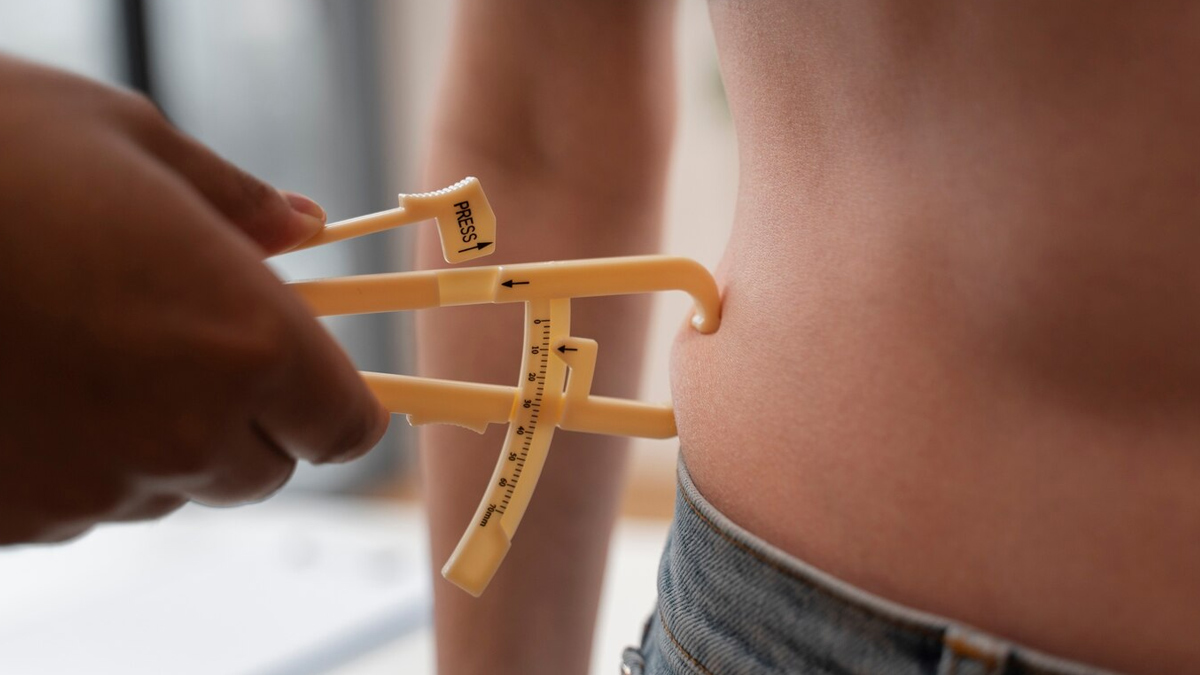
Losing weight, especially shedding belly fat, is not easy. From eating healthy to avoiding junk food to exercising regularly, a combination of efforts is involved in the process. However, in some people, lifestyle changes are not enough—sometimes it goes beyond what you eat and how much you exercise.
Table of Content:-
One common culprit is hormonal imbalance, which can disrupt several functions in the body, including how your body processes fat by influencing metabolism. Dr Farah Ingale, Director - Internal Medicine, Fortis Hiranandani Hospital, Vashi, not only sheds light on the link but also shares tests you can undergo to find out whether hormonal changes are behind your stubborn belly fat.
Also Read: From Mood Swings To Joint Pain: How Low Oestrogen Affects Your Body
How Do Hormonal Imbalances Cause Weight Gain?

Hormones, such as insulin, leptin, sex hormones, and growth hormones, influence our appetite, metabolism, and body fat distribution, says Dr Ingale, adding that obese people usually have high levels of these hormones, which contribute to stubborn belly fat, she explains.
She explains that fat cells in the body produce a hormone called leptin, which helps in initiating satiety or a feeling of fullness in the body after eating. When leptin signalling functions properly, it helps regulate appetite by signalling to the brain that the body has had enough food. However, in obese people, excess fat cells produce higher levels of leptin, which does not improve communication with the brain. Instead, it can lead to leptin resistance, where the brain becomes less responsive to the hormone.
As a result, the brain fails to register satiety, leading to overeating and weight gain.
How Do Stress Hormones Affect Belly Fat?

When it comes to stubborn belly fat, stress hormones are a contributing factor.
“Stress hormones, particularly cortisol, play a significant role in the accumulation of belly fat,” says Dr Ingale, adding that when you're stressed, your body releases cortisol as part of the ‘fight or flight’ response. Over time, chronic stress can lead to elevated cortisol levels, which in turn can promote fat storage in the abdominal area.
Decades-old study published in Obesity Research found that women with more belly fat released more of the stress hormone cortisol when they were stressed. This didn't happen when they were relaxed. They also seemed to struggle with stress more and held back their anger, suggesting that stress might cause more belly fat.
Exercising regularly, sleeping for at least eight hours a day, and eating a healthy balanced diet consisting of whole grains, fruits, vegetables, lean proteins, and healthy fats is therefore important, the doctor notes.
Hormone Tests To Know Why You’re Not Losing Weight
“Certain hormones like thyroid hormone, insulin, leptin, oestrogen, and testosterone play a role in metabolism, weight gain, and also weight loss. Blood tests for these hormones as well as urine and saliva tests to measure these can be done,” says Dr Ingale, adding that some at-home hormone testing kits can be used to measure the levels of these hormones in saliva and urine; patients must talk to their healthcare provider before taking these.
Also Read: Endocrine Disorders: Expert Explains Their Symptoms, Causes, And Treatment
What Are The Best Dietary And Exercise Strategies For Hormone-Related Weight Gain?

Diet and exercise play a crucial role in managing hormone-related weight fluctuations.
To curb hormone-related weight gain, Dr Ingale recommends sticking to a diet free from refined sugar, preservatives, and processed foods. She advises individuals who find it difficult to lose weight to consume a diet rich in fruits, grains, vegetables, and lean proteins, which is a good start.
Furthermore, the doctor warns against foods with artificial colours and synthetic flavours, as they can hamper hormonal balance and exacerbate hormonal imbalance.
Also watch this video
How we keep this article up to date:
We work with experts and keep a close eye on the latest in health and wellness. Whenever there is a new research or helpful information, we update our articles with accurate and useful advice.
Current Version